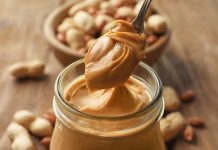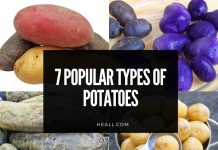Cane sugar can be avoided with a little effort and even a little experimental fun. Luckily, alternatives do exist and are available in most grocery stores.
Whether you’re dealing with a cane sugar allergy or just looking for a healthier alternative, this guide will help you confidently distinguish between what is, and is not, cane sugar when reading ingredient labels. The term “sugar” in an ingredient list does not necessarily mean that it derived from cane sugar.
White table sugar is typically refined from cane sugar, but there are several kinds, and sources, of sugar. Ingredient labels are not required to disclose the origin of the sugar (i.e. beet, cane, corn) so it is not always possible to know just by reading the ingredient list. In this case, the only way to find out the source of the sugar is to contact the company. Cane sugar is found in the majority of processed foods, so if you are dealing with food allergies it is important to always read food labels to avoid symptoms and potential hospital visits.
Table of Contents
What Is Sugar Cane
- evaporated cane juice
- cane juice
- sugar (usually)
- brown sugar
- white sugar
- turbinado sugar
- raw sugar
- fructose (only sometimes on ingredient lists, never from fruit)
- powdered sugar
- molasses (usually)
What Is Not Sugar Cane
- Beet sugar
- Date sugar
- Maple sugar
- Maple syrup
- Coconut sugar
- Corn sugar
- Corn syrup
- High fructose corn syrup
- Lactose (milk sugar)
- Honey
- Stevia
Sugar Alternatives
Artificial sugar alternatives will not be discussed here because there are plenty of natural sugar alternatives available. Artificial sugar alternatives are considered food additives, similar to food dyes and preservatives. Food additives are poorly-tolerated by many people, so it is best to limit them in your diet. The products listed below are either naturally free of cane sugar or contain only natural alternatives to cane sugar.
Unsweetened Milk Alternatives
There are plenty of milk alternatives available these days. For vegans, people with dairy allergies, and people with lactose intolerance, unsweetened milk alternatives are a savior when cooking, baking or simply craving a bowl of cereal. They are available in health food stores, and increasingly, in conventional grocery stores.
- Coconut Milk (Original)
- Hemp Milk (Original, Vanilla, and Chocolate)
- Soy Milk (Original, Vanilla, and Coffee)
- Almond Milk (Original, Vanilla, and Chocolate)
Other Food Alternatives
- Fresh fruit is a healthy and sweet snack, naturally containing fructose, not cane sugar.
- Coconut Aminos is a great replacement for soy sauce and contains no sugar.
- Fruit spreads with no sugar added (100% fruit sweetened) should be safe, but check the ingredient label to be certain.
- Unsweetened chocolate chips and unsweetened cocoa powder still taste great in desserts and actually contain some health benefits because of their high percentage of cacao. Cocoa nibs are also a great, slightly crunchier and nuttier, alternative to unsweetened chocolate chips.
- No sugar added fruit juices are only sweetened by their natural sugars. Some sugar free fruit juices are quite bitter, but a little sugar substitute plus an appreciation for the fruit’s natural flavor will go a long way.



